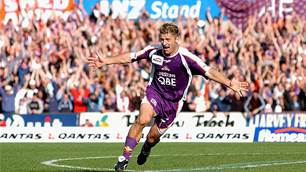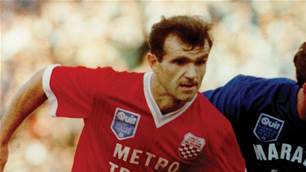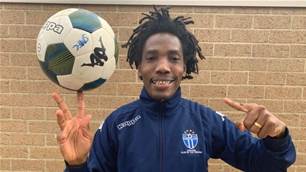It was 40 years ago that Brisbane City FC climbed the pinnacle of the Australian game, winning the second incarnation of the National Cup Competition.
But where are the 1977 and 1978 Phillips Cups?
First, a little background: 1977 was a momentous year in Australian sport. The Gleneagles Agreement was signed to pressure South Africa into abandoning Apartheid by casting the nation into the sporting wilderness. Australia beat England by 45 runs in the Centenary Test at the MCG. Both the NSWRL and VFL Grand Finals were forced into replays for the first time. And Brisbane City Football Club defied the odds to win the inaugural NSL Phillips Cup Competition.
The Phillips National Soccer League was formed in 1977 as the first truly national league of any code in Australia, featuring teams from Adelaide, Melbourne, Sydney, Canberra and Brisbane. (Perth would not have a team until 1996. As for Tasmania, excluding the Apple Isle is clearly not a modern issue.)
In that first season, the league was won by Eastern Suburbs Hakoah, who beat Marconi Fairfield into second spot on the ladder thanks to a superior goal difference, after the two sides finished level on points.
The early years of the NSL lacked a finals series and champions were determined based on a first past the post model as opposed to the typical, Australian-favoured one off decider.
Instead, the Australian Soccer Federation arranged a national knockout competition at the culmination of the home and away season to further capitalise on the interest generated by the new season, and perhaps as a nod to the part that the long since defunct Australia Cup played in the NSL’s establishment.

Brisbane City entered the competition as rank outsiders. The Azzurri had finished in 10th position in the 14 team league, just behind bitter local rivals Brisbane Lions.
Lions were City’s first opponents in the post season tournament - and in a pulsating battle, City cast aside any sense of disappointment at finishing as bridesmaids to their Queensland rivals in the league by running out 3-2 winners.
Sydney’s ultimately ill-fated Western Suburbs side were up next for City, and despite falling to a 1-0 defeat at Perry Park earlier in the season, the visitors could not repeat the dose, falling to a 2-1 extra time defeat.
Western Suburbs - who finished in 5th spot on the ladder that year - would ultimately merge with APIA Leichhardt Tigers at the end of the 1978 NSL season, condemned into the annals of “old soccer”.
Next up for City was a trip to West Adelaide Hellas for the semi-finals - who had finished in 7th spot on the ladder. The lopsided, 14 team structure of the Cup meant that West Adelaide had a bye through the quarter finals after defeating local rivals Adelaide City 3-2, but the extra rest counted for nothing as City ran out 3-2 victors.
City had made the final, but it was here that most felt that the dream run would have to end. Standing in the way of the Gladiators first piece of national silverware was the formidable form of Marconi Fairfield.
The Stallions were one of the NSL’s powerhouse clubs, winning the title on four occasions - a record they hold with South Melbourne and Eastern Suburbs/Sydney City.
In the inaugural season, the Stallions dropped to second spot on the ladder thanks to Eastern Suburbs’ superior goal difference. Marconi had won two more games than Hakoah and were seeking revenge in the opening round of the NSL Cup.
The Premiers were dispatched 1-0 at Marconi Stadium, with Canberra City similarly sent packing in the quarter finals by a score of 2-1.
Like City, Marconi left the comforts of home for the semi-final, heading south to take on Fitzroy United. Fitzroy (now known as Heidelberg United) were overcome 3-2 in Melbourne, setting up a Final date against City at Perry Park in Brisbane.
Regarded as overwhelming underdogs by the local press, City were 100-1 outsiders, although they may have exaggerated the scale of City’s achievement in the aftermath of the result.
In the home and away season, Marconi had defeated City both home and away. A Peter Sharne goal the difference in a 1-0 Round 1 victory at Perry Park, Gary Byrne scoring the only goal in Fairfield later in the year.
Related Articles

'We are thrilled': A-League second division set to 'reconnect' NSL fans with the sport

A-League 'celebrating' NSL history in Grand Final presenter













